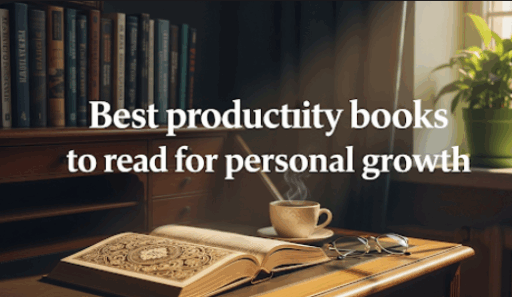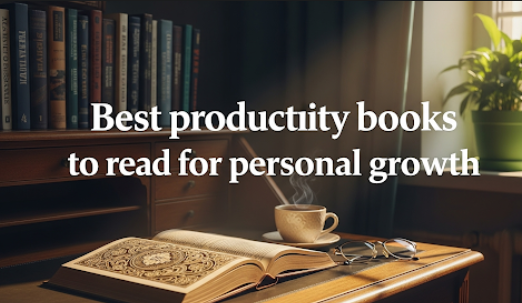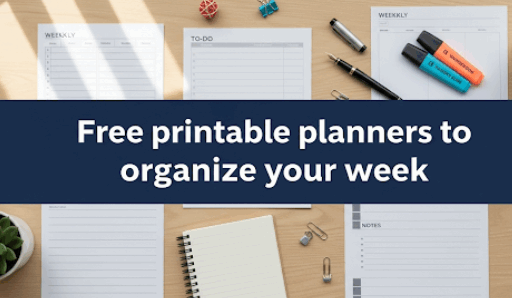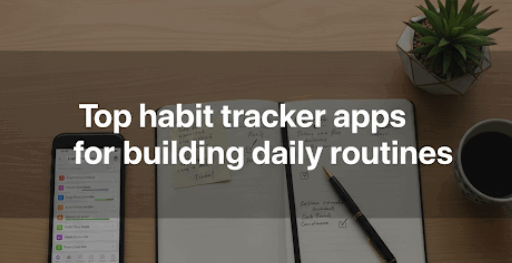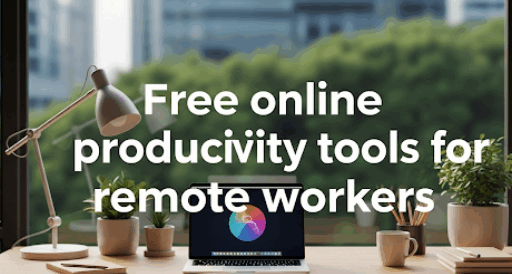4 Top Productivity Books for Personal Growth: Change Your Life by Reading Smart
Deciding to start the journey toward improved productivity and self-improvement is daunting. In a market of thousands of self-help books, how do you choose the ones that actually do something for you? The correct productivity book has the power to change your everyday habits, sharpen your concentration and even achieve objectives you never dreamed of.
Now let us take a look at some of the most useful productivity books out there, available to millions around the globe. If you are a student looking to make better use of your time, are employed and want to get ahead in your career, or just seek to create new habits for life, these books provide answers that you can apply today.
Why Reading Productivity Books Actually Works
But before I get to the books, let me explain why they can change your life for the better. Productivity books offer detailed, research-backed strategies that can be implemented step by step. Unlike superficial online tips or social media advice, they provide substantial value.
More than just providing new insights, reading about productivity reprograms your mind to see time differently and changes the way you view goals and daily habits. By reading about the techniques of success, you automatically get your head thinking in new ways about what’s possible for you.
The best productivity books possess:
- Strategies that have been proven with real research
- Actionable takeaways you can implement immediately
- Compelling narratives that drive lasting behavior change
The Top 10 Productivity Books That Will Change Your Life
1. Atomic Habits by James Clear
Many people have good reason to buy this modern classic: it has sold over 10 million copies. Clear distills the science of habit formation down into simple, usable strategies anyone can action.
Key takeaways:
- Massive success is the result of many small things done together over a long period of time
- Focus on systems, not just objectives
- Make positive activities obvious, and unhealthy actions invisible
- Start new behaviors with the 2-minute rule
Ideal for: Those craving consistency but failing to commit long term.
Real-world application: Begin with small behaviors such as reading one page a day or doing five push-ups every morning. These small actions add up to monument-sized results.
2. Getting Things Done by David Allen
The GTD system by Allen has helped millions of people streamline their work and personal life. The book will show you how to manage all of your commitments using a simple system for capturing, clarifying, organizing and reviewing everything you are committed to.
Core principles:
- Capture everything in a reliable system
- Clarify what each item involves and determine the next action
- Organize by context and priority
- Review regularly to maintain focus
Ideal for: The busy professional with too much to do and not enough time to get it all done.
How it works: The GTD methodology is based on capturing and storing everything in a trusted system to get them out of your mind and give you mental space.
3. The 7 Habits of Highly Effective People by Stephen Covey
Covey’s work is practically timeless and highly practical. The primary topic in the book is leadership through character and personal effectiveness.
The seven habits:
- Be proactive
- Begin with the end in mind
- Put first things first
- Think win-win
- Seek first to understand, then to be understood
- Synergize
- Sharpen the saw
Who it’s for: Anyone who wants to get better at leading people or relating to other human beings.
4. Deep Work by Cal Newport
Newport’s book on deep, focused work in a world full of distraction has become something of a must-read. He argues that the skill of deep concentration is ever more scarce and therefore valuable.
Main concepts:
- Deep work allows for better and faster results
- Shallow work leads to the appearance of action but little real progress
- Attention residue from task-switching hurts your focus
- Establish rituals and routines to safeguard your deep work hours
Especially ideal for: Knowledge workers, students and white-collar professionals who need to produce tangible results.
5. The Power of Now by Eckhart Tolle
Not necessarily a productivity book, but Tolle’s lessons on being present can do wonders for your focus and peace of mind.
Key insights:
- The vast majority of stress originates from thinking about the past or anticipating the future
- Present-moment awareness improves decision-making
- When a person is mindful, there are fewer mental distractions, giving you more focus and clarity
- Productivity and peace are best friends
Who should buy: People who are caught up in mental turmoil most of the time and want more tranquility throughout their day.
6. Essentialism by Greg McKeown
McKeown’s book teaches how to apply the disciplined pursuit of less but better. Essentialism is not about doing it all — it’s about doing what matters most.
Core philosophy:
- Less is more — do fewer things but do them extremely well
- No matter how great the opportunity is, if it’s not essential, say NO
- Remove the non-essential to make room for what truly matters
- Make space for what’s important
Ideal for: Busy people who are spread too thin and want to get more focused.
7. The Miracle Morning by Hal Elrod
The 6-step morning routine that Elrod has developed has been adopted by thousands of people across the world, enabling them to wake up every day with purpose and energy. This book provides six morning habits to ensure you start the day right and reach your goals daily.
The SAVERS method:
- Silence (meditation or prayer)
- Affirmations (positive self-talk)
- Visualization (mental rehearsal)
- Exercise (physical activity)
- Reading (personal development)
- Scribing (journaling)
Ideal for: Those who want to transform their mornings and set the stage for a productive day.
8. Mindset by Carol Dweck
The research of Dweck, the Stanford psychologist, on growth vs. fixed mindset has revolutionized how we view learning and achievement.
Key concepts:
- A fixed mindset believes that ability is static
- A growth mindset believes abilities can be developed through effort
- Challenges become opportunities for growth
- Failure becomes feedback for improvement
Ideal for: Students, parents and anyone looking to cultivate resilience and habits of lifelong learning.
9. The One Thing by Gary Keller
Keller’s approach can be distilled down to one core question: “What’s the ONE thing I can do such that by doing it everything else will be easier or unnecessary?”
Main principles:
- Multitasking is a myth that decreases effectiveness
- Priority means working on your top task first
- The secret to success: Do the right thing, not everything
- Time-blocking protects your most important work
For: Those who feel scattered and want to focus their energy on what really matters.
10. Make Time by Jake Knapp and John Zeratsky
This book, written by former Google designers, offers practical strategies to help you carve out time in our noisy world for your most important work.
The Make Time framework:
- Highlight: Choose your daily priority
- Laser: Beat distraction and focus
- Energize: Keep physical and mental energy
- Reflect: Assess and adapt
Ideal for: People who feel caught in a swirling world of busyness, especially with technology distractions.
How Different Books Address Common Productivity Challenges
| Challenge | Recommended Books | Why They Help |
|---|---|---|
| Poor time management | Getting Things Done, The One Thing | Provide systematic approaches to organizing tasks and priorities |
| Lack of focus | Deep Work, Make Time | Teach strategies for focused work in a distracted world |
| Bad habits | Atomic Habits, The Power of Now | Offer science-based methods for habit change and awareness |
| Overwhelming workload | Essentialism, The 7 Habits | Help identify what’s most critical and remove the rest |
| Low motivation | The Miracle Morning, Mindset | Build daily practices that create energy and resilience |
How to Choose the Right Productivity Books Based on Where You Are
Not every productivity book is for everyone. Here’s how to find the best books for your situation:
For Students and Young Professionals
Atomic Habits + Mindset: Both help create foundational building blocks for good study practices and develop a learner’s mindset through challenging experiences.
For Busy Executives and Managers
Getting Things Done + Essentialism: GTD helps manage the flood of information and commitments, while Essentialism helps you focus on high-impact activities.
For Creative Professionals
Deep Work + The Power of Now: Deep Work helps you create focused time blocks while The Power of Now maintains present-moment awareness that fuels creativity.
For Those Who Struggle with Work-Life Balance
The 7 Habits of Highly Effective People + Make Time: Both offer comprehensive strategies for living purposefully across all areas of life.
Setting Up Your Own Strategic Reading Plan
You need a tactical approach to reading productivity books. Here’s how to consistently get the most value:
Phase 1: Foundation Building (Months 1-2)
- Start with Atomic Habits to build a consistent reading habit
- Add The Power of Now for present-moment awareness
- Focus on only 1-2 main ideas from each book
Phase 2: System Development (Months 3-4)
- Read Getting Things Done or The One Thing for comprehensive systems
- Develop your personal productivity system
- Track what works best for your lifestyle
Phase 3: Advanced Optimization (Months 5-6)
- Choose Deep Work, Essentialism, or Make Time based on your biggest challenges
- Refine your processes
- Start teaching what you’ve learned

How to Read Productivity Books Effectively
Reading about productivity means nothing unless you put it into practice. Here are proven ways to get real results:
Active Reading Techniques
- Take notes focused on action items
- Highlight key concepts that resonate with you
- Create summary cards for quick review
- Write down action items for each big idea
Implementation Strategies
- Focus on one book at a time to avoid information overload
- Practice one strategy for at least 1 week before adding others
- Track what actually produces results
- Share your progress with others for accountability
Building a Reading Habit
- Read at the same time every day (preferably in the morning)
- Start with only 10-15 minutes daily
- Keep your current book visible as a reminder
- Listen to audiobooks while commuting or exercising
Measuring the Impact of Reading Productivity Books
Here are key indicators to track your progress and determine if you’re getting value from your reading:
Productivity Metrics
- Time spent on high-value activities
- Number of important goals achieved
- Less time lost to distractions
- Improvement in work quality
Personal Growth Indicators
- Increased confidence in handling challenges
- Improved relationships with coworkers and family members
- More consistent daily habits
- Greater sense of life satisfaction
Long-term Benefits
- Career advancement opportunities
- Improved health and energy levels
- Stronger personal relationships
- Greater financial security through improved performance
Common Mistakes to Avoid When Reading Productivity Books
Many people read productivity books but don’t experience real change. Here are typical traps and how to avoid them:
Information Overload
Mistake: Trying to implement everything at once
Solution: Master 1-2 strategies at a time
Perfectionism
Mistake: Waiting for the perfect moment to start
Solution: Begin small and build momentum
Lack of Consistency
Mistake: Reading sporadically without routine
Solution: Schedule daily reading time and stick to it
No Implementation Plan
Mistake: Reading without applying the concepts
Solution: Create specific action items for key learnings
Transform Your Life Through Strategic Reading
The right productivity books should do more than offer tips and tricks — they should provide you with a framework to build a completely different lifestyle. The right books, combined with consistent practice, can deliver significant improvements in both productivity and life satisfaction.
Remember that real transformation doesn’t happen overnight. Recognize that life changes occur gradually, compounding month over month to create permanent lifestyle shifts over the course of years.
Start with one book that addresses your biggest current challenge. Read it, implement its core principles, and measure your results. After those habits become part of your life, move to the next book that will help you grow.
The journey of personal growth through reading is ongoing. The books provide the foundation, but your consistent action determines the results. Choose wisely, read actively, and above all, take action on what you learn.
In the end, your future self will thank you for beginning this journey today. Pick up one of these transformative books and start building the more productive, successful life you deserve.
